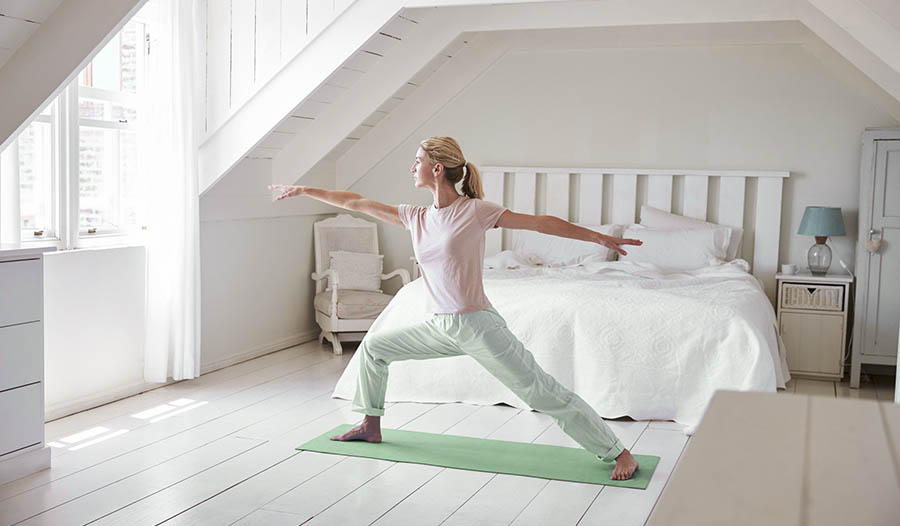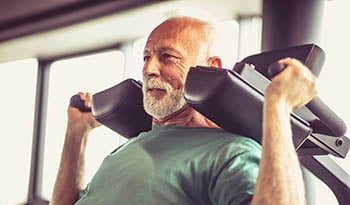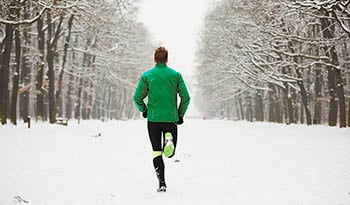How to Improve Fitness with Better Sleep
DISCLAIMER:This blog does not intend to provide diagnosis...
- In this article:
- How Sleep Affects Workouts
- L-theanine
- Valerian Root
- Passion Flower
- Glycine

By Sarah Baker, CHN
It seems as if the number one issue many of us face when it comes to our productivity, motivation to work out and energy levels is sleep. Lack of adequate sleep is extremely common. Whether it’s due to insomnia from daily stressors, being a new parent, or having a demanding schedule, not getting enough sleep can really wreak havoc on our day. Even habits that we aren’t aware of can keep us up at night—like drinking coffee too late in the day or being on our electronics too late in the evening. Whatever the culprit behind your lack of sleep, it’s essential to start making quality shut-eye a priority for a number of reasons.
How Sleep Affects Workouts
Getting quality sleep helps with productivity during the work week, mood regulation, weight management, and of course our overall health and wellness. When it comes to fitness goals, not getting enough sleep can have a negative impact on muscle recovery and growth. When our muscles don’t fully recover, injuries are more likely to occur which can bring workouts to a halt. Plus, you need energy to consistently meet your fitness goals—lack of sleep means lack of motivation.
The average healthy adult needs between 7-9 hours of sleep a night, but for those that are active proper sleep is even more crucial. When you exercise regularly, lack of sleep can lead to getting fatigued more easily during workouts as well as hindered recovery overnight. When you are sleeping, protein synthesis occurs in your muscles as well as the creation of HGH (human growth hormone) which is essential for growing and recovering worn down muscles after an intense workout.
To ensure that you’re getting enough rest to get the most out of your workouts and hitting your fitness goals, I’ve rounded up specific supplements and ingredients that can assist with obtaining quality sleep.
L-theanine
L-theanine is an amino acid that has been shown to help combat how caffeine affects sleep (a bonus if you’re an avid coffee drinker). This naturally occurring amino acid can help improve the quality of sleep and stress levels and is best taken in supplement pill form. It is also found in tea leaves such as black and green tea. L-theanine can boost levels of gamma-aminobutyric acid (GABA), a neurotransmitter that helps you feel calm and relaxed. This amino acid also helps improve your alpha brain waves which are present during your REM sleep cycle and enhances not only relaxation but also a calm meditative focus and creativity.
Valerian Root
Valerian root hails from Europe and parts of Asia and is known as a powerful herb that can ease anxiety and improve mood, helping you to drift off to a peaceful slumber. It is another herbal remedy that can help your brain naturally produce GABA to help you with relaxation. If you experience insomnia, valerian can also help ease symptoms like having trouble falling asleep and feeling groggy upon waking.
Passion Flower
This popular herb can help combat insomnia and anxiety in adults and is commonly consumed in tea form, but pill supplements are also a popular way to utilize the calming effects of this herb. Most studies point towards the benefits of utilizing passion flower to ease anxiety by attaching to—you guessed it—GABA receptors, which are extremely important for regulating your mood when it comes to sleep and stress.
Glycine
Glycine is another amino acid that is naturally found in the body and is also a neurotransmitter. Although glycine is found in many foods like meat, fish, dairy, and legumes, supplementation can be used to benefit both sleep and workout recovery. Studies have shown that glycine can calm the nervous system and brain (although in some cases, it can also stimulate it) and can even help boost memory. It supports healthy sleep habits by helping you fall asleep at a faster rate, improves the quality of your sleep, and can help combat insomnia.
In addition to including specific supplements and ingredients into your evening routine, there are other ways to help improve the quality of your sleep each night. Establishing a calming bedtime routine which can include activities like taking a warm bath, reading a book vs watching TV, or even meditating and practicing yoga can help your brain wind down from a long day. Avoiding stimulating blue light from cell phones and electronics a few hours before you sleep can also help you fall asleep faster—so can making your room slightly cooler so that you feel cozy under your sheets. No matter what route you take to better sleep, the more sleep you get, the more likely you’ll reach your fitness goals.

 By Sarah Baker, CHN
By Sarah Baker, CHN


